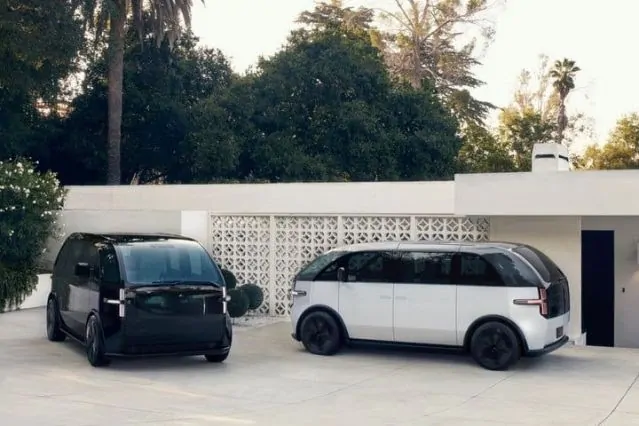Like Netflix. Like a magazine. You can keep it for just a month. The startup ushers in an era of electric cars as a service and not as a product.
Startups in the field of electric cars have long tried to repeat Tesla's prodigious success, but Canoo tries to do something new and launch the car subscription.

Rather than making a luxurious car with killer performance and a blue price, Canoo's electric car has the look of a futuristic minivan, and will be available only by subscription from 2021.
The car bill
It's not a purchase, it's not a rental. It's really a subscription car, it's like having an account to watch TV in streaming.
“The new generations don't want to spend a lot of money to get a car,” says Ulrich Kranz about the economic model of Canoo.
Customers will pay a monthly fee that includes the cost of the car, insurance and maintenance. Everything will be managed by an app, no point of sale. You can return the car even after a month, which Kranz predicts will encourage many more people to try electric cars.

No constraints
“Many potential customers don't even know they need an electric car,” says Kranz in reference to concerns about the kilometer range and the presence of a good number of charging stations. Being able to experience an electric car without buying or leasing will push people to use electric vehicles more and give Canoo an edge over all other companies.
Canoo's subscription car

The vehicle itself does not resemble any of those seen so far. The capsule design provides space for 7 people in the same volumes (and with the same impact) as a compact car.
Canoo describes the interiors as “a loft on wheels,” with the seats developed as comfortable sofas and armchairs. There are no futuristic infotainment systems: the owner's smartphones or tablets are simply placed inside the dashboard. A real "service car".
The vehicle is built on a "skateboard" chassis which contains all the mechanical components. This easily allows Canoo to upgrade the car with different looks and carriages, as well as maximize interior space.
Canoo's range is 400km, and a fast system allows a vehicle to be charged to 80% in 30 minutes.
The first set-up will see a single electric motor capable of delivering 300 horsepower, but the chassis will also allow two-motor versions (positioned at the two ends of the vehicle).
Do what it takes
Spartan in some aspects, Canoo will instead have considerable safety equipment with 7 cameras, 5 radar units and 13 ultrasonic sensors for advanced level assisted driving. The modularity of the system will allow (always paying a subscription) to find yourself, as if it were a constantly updated Netflix catalogue, suddenly with a self-driving car.
Canoe, high hopes and rebellions
Canoo was founded in 2017 by Ulrich Kranz e Stefan Krause after slamming the door (with a bitter lawsuit still ongoing) of another startup, Faraday Future.
Prior to this controversy, Kranz and Krause gained robust experience in the automotive sector, with several years of work at BMW. Also from BMW (he designed the i3 and i8) comes Richard Kim, the designer of Canoo.
Subscription car
High management costs and the need for constant adjustments push the car to become a service. Something to pay for like gas or electricity. Many traditional companies are planning services similar to Canoo's, but they will have to face the expenses of a reseller network that will soon lose much of its raison d'être.
The absence of these constraints and costs will allow Canoo to set a much more advantageous subscription price for its cars.
The Canoo service will debut in early 2021 in Los Angeles, followed by San Francisco and the main cities on the West coast.




